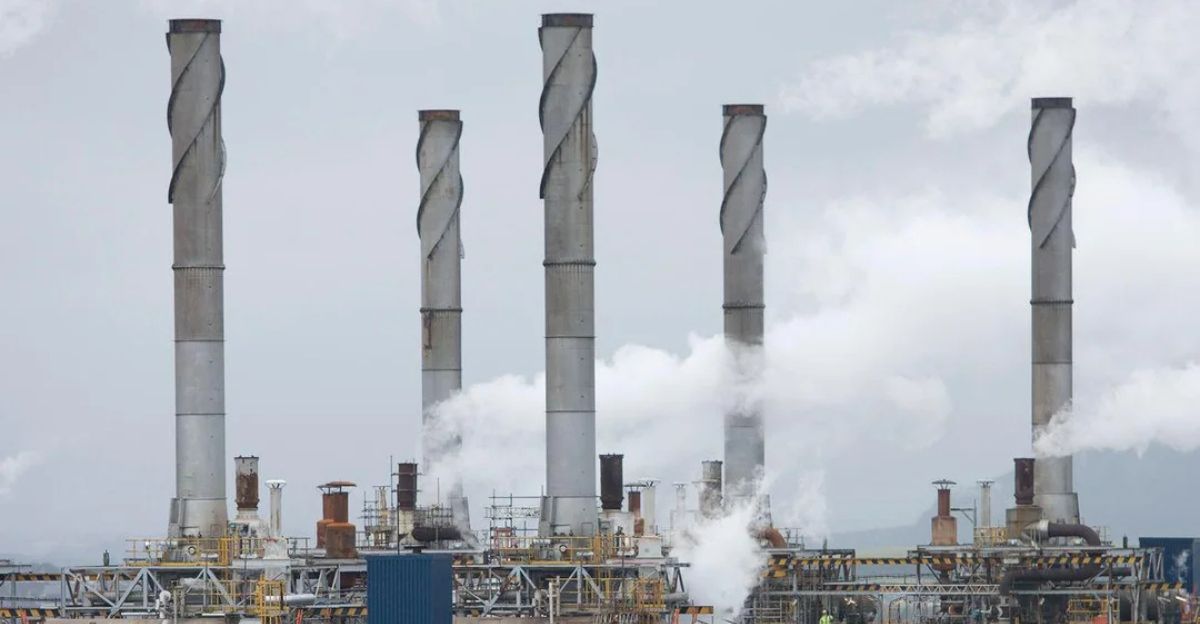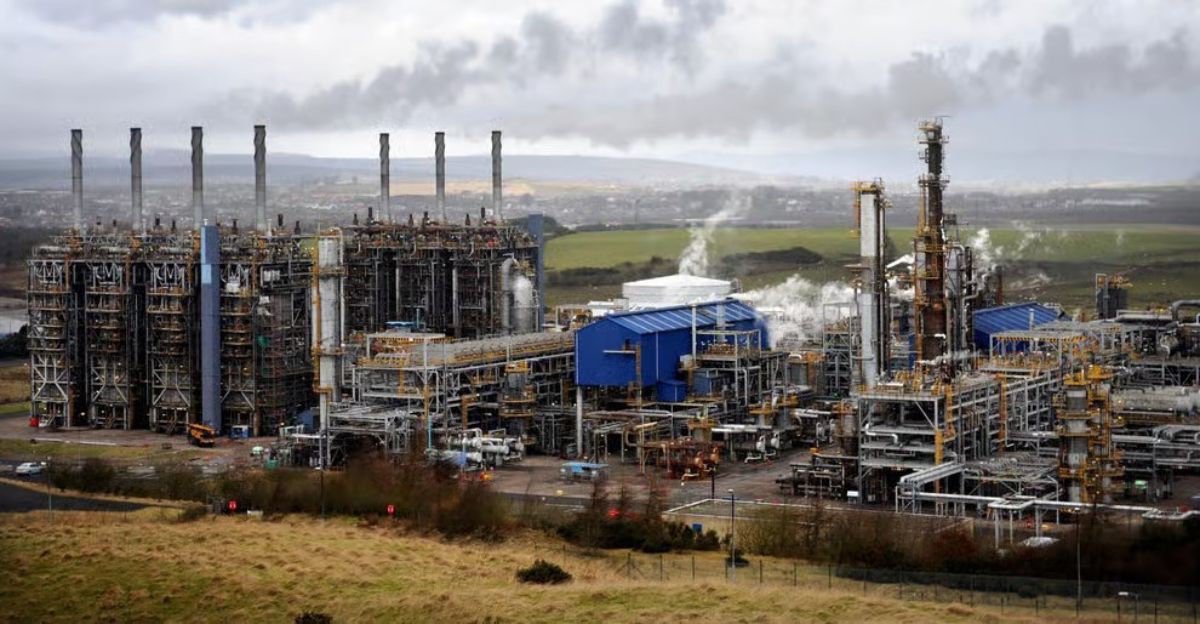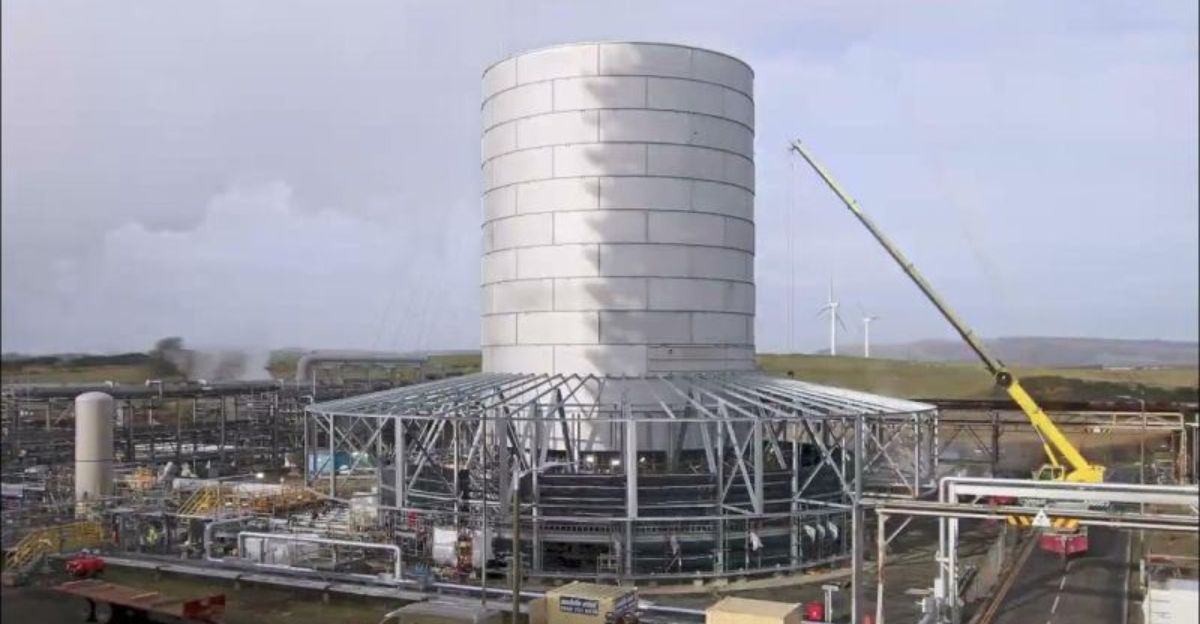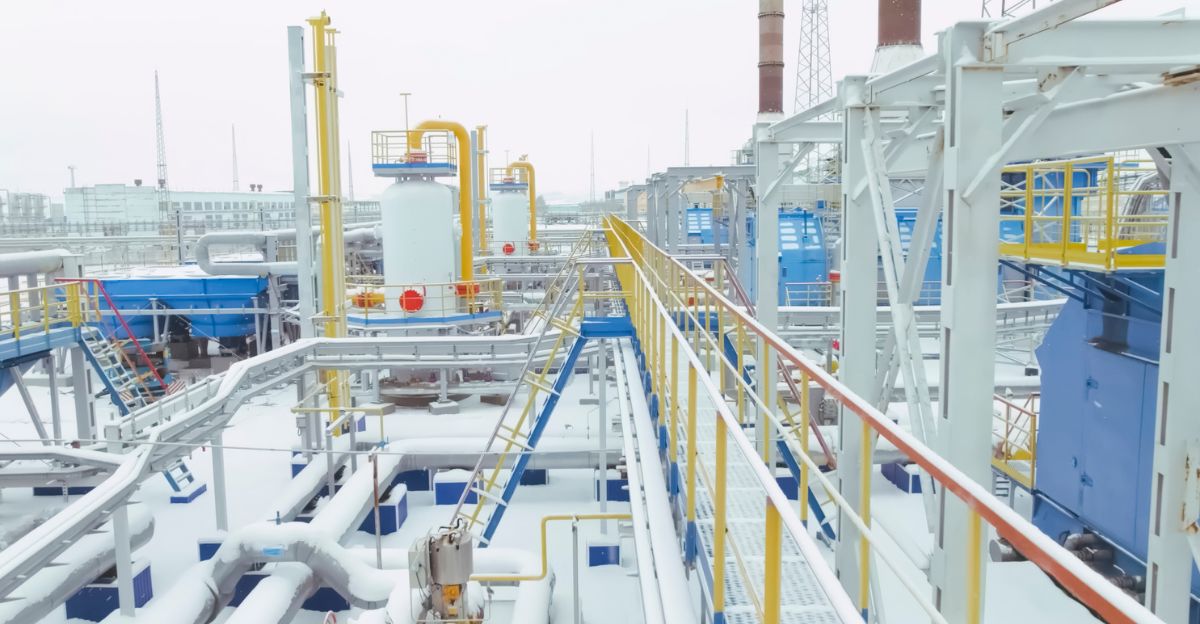
ExxonMobil has announced the closure of its Fife Ethylene Plant after running for forty years. This shocking decision puts more than 400 jobs on the line, making it Scotland’s biggest single industrial job loss in 2025. The plant, located at Mossmorran near Cowdenbeath, has been a vital part of the community since 1985. Now, hundreds of families don’t know what comes next.
Workers who’ve dedicated decades to this facility are facing unemployment. The closure marks a turning point for UK manufacturing as a whole. According to ExxonMobil’s statement, 179 direct employees and approximately 250 contractors will be affected when operations cease in February 2026.
Why It’s Closing

ExxonMobil didn’t mince words when explaining why they’re shutting down. The company’s UK Chairman, Paul Greenwood, blamed UK government policies for making the plant impossible to run profitably. He pointed to several critical problems like windfall taxes on energy companies, a ban on new oil and gas production licenses, and energy costs that have spiraled out of control.
British industrial energy prices are now up to 60% higher than in the European Union and a staggering 400% higher than in the United States. The company tried to find a buyer for the facility but failed.
Four Decades of Production

Since opening its doors in 1985, the Fife Ethylene Plant has been a powerhouse of UK chemical manufacturing. The facility operated continuously, producing up to 830,000 tonnes of ethylene every single year.
Ethylene is a crucial building block chemical used to make everything from plastic bottles to medical equipment. About half of the plant’s output stayed in the UK, supplying domestic manufacturers, while the rest was exported to customers across Europe. The facility ran around the clock with three shifts of dedicated workers who kept the complex chemical processes running smoothly and safely, maintaining Scotland’s position in European petrochemical markets.
Rising Costs Squeeze Operations

Multiple economic pressures have been squeezing the plant for years. North Sea oil and gas production is projected to drop by half by 2030, driving raw material costs higher. Natural gas prices in Europe have been four to five times more expensive than American prices, making energy-intensive operations like ethylene production increasingly uneconomical.
ExxonMobil needed approximately £1 billion in investment just to keep the site competitive and viable for the future. One government assessment suggested that ExxonMobil’s funding request would have cost public coffers around £760 million and still would not have made the plant profitable in the long term.
Official Closure Announcement

On November 18, 2025, ExxonMobil made it official that the Fife Ethylene Plant will permanently close by February 2026. After months of discussions with government officials and unsuccessful attempts to find a buyer, the company determined that continued operation simply wasn’t commercially viable.
In their formal statement, ExxonMobil said the closure reflects the challenges of operating in a policy environment that is accelerating the exit of vital industries, domestic manufacturing, and the high-value jobs they provide. The plant had been struggling with profitability issues, but the finality of the closure decision caught many by surprise.
Impact on Local Communities

The closure’s devastating effects will ripple far beyond the plant gates. Hundreds of families in Fife now face uncertain futures, with most workers heading toward redundancy. ExxonMobil has offered transfers to its Fawley complex in southern England, but that facility is nearly 500 miles away, an impossible distance for most families with children in schools, aging parents nearby, and roots deep in their communities.
Only about 50 employees will likely accept relocation, while approximately 50 more may remain on-site until 2027-28 to handle decommissioning work. Local businesses that depend on plant workers are bracing for a major economic downturn.
Workers Voice Frustration

Union leaders and workers have expressed anger, disappointment, and a deep sense of betrayal. Unite, Scotland’s largest trade union with 150,000 members, has been particularly vocal in criticizing both ExxonMobil and government officials. Workers describe feeling abandoned after dedicating their careers to the plant.
Many employees learned about the closure through formal consultation meetings, but the speed of the announcement left little time to process or plan. Long-time employees who expected to retire from Mossmorran now face starting over in their 50s and 60s, competing in a job market that offers few opportunities for their specialized skills.
Europe’s Chemical Industry Retreats

The Fife closure isn’t happening in isolation, it’s part of a massive wave of shutdowns across European petrochemical manufacturing. Since 2024, seven steam cracker facilities have either closed or announced closure plans, eliminating over 4.5 million tonnes of annual ethylene production capacity from the European market.
These closures span multiple countries as companies struggle with the same challenges: expensive energy, shrinking feedstock supplies, and competition from lower-cost producers in Asia, the Middle East, and North America. The UK has been hit especially hard. After Fife closes, only one ethylene cracker will remain operational in Britain, the Ineos facility at Grangemouth, Scotland. That plant itself faces serious questions about long-term viability given similar cost pressures.
Brutal Market Conditions

The numbers paint a grim picture for European chemical manufacturers. Global ethylene operating rates have fallen to 84% in 2025, down from over 90% before 2019, indicating significant overcapacity in the market. British industrial energy prices have become uncompetitive on the world stage, up to 400% higher than in the United States and 60% higher than the European Union average.
North Sea feedstock supplies, which the Fife plant relied upon, continue shrinking as oil and gas production declines. Natural gas prices in Europe have remained four to five times higher than American prices following the energy crisis triggered by the Ukraine conflict. These fundamental economic realities make UK-based chemical manufacturing increasingly unviable compared to facilities in regions with abundant, cheap energy and feedstock.
Beyond Direct Employees

The 179 direct ExxonMobil employees represent just part of the total job losses. Approximately 250 contractors who provide maintenance, engineering, logistics, and specialized services will also lose work when the plant closes. These contractors often have families and mortgages just like direct employees, but they may have fewer safety nets and redundancy protections.
Local suppliers, companies providing everything from safety equipment to catering services, face lost business that could force additional layoffs. The closure has also intensified political debates about the UK’s net-zero climate policies. Some politicians blame environmental regulations and carbon taxes for accelerating industrial decline, arguing that manufacturers can’t compete while bearing costs that importers avoid.
Union Calls for Action

Unite and other unions have strongly criticized what they see as inadequate intervention from both ExxonMobil and the government. Union representatives argue that more aggressive action could have saved the plant or at least better protected workers facing redundancy. They point to other European countries where governments have provided substantial support to strategic industries during transitions.
The unions highlight what they see as a lack of urgency and long-term industrial strategy from UK policymakers. They’ve warned that if current trends continue the consequences will extend far beyond Mossmorran. Other manufacturing sites may follow the same path, accelerating deindustrialization in regions that desperately need quality employment.
Government Response

UK Industry Minister Chris McDonald acknowledged that government officials held weekly meetings with ExxonMobil representatives starting in August 2025, trying to find a path forward. However, McDonald insisted that the level of state financial support required was beyond acceptable levels for British taxpayers.
The government position emphasized that ExxonMobil’s funding requests would have consumed hundreds of millions of pounds without guaranteeing the plant’s long-term viability. Meanwhile, ExxonMobil Chairman Paul Greenwood reinforced that government policy and market realities created insurmountable obstacles.
No Path to Revival

With no buyer stepping forward and no government bailout materializing, prospects for saving the Fife Ethylene Plant appear virtually nonexistent. ExxonMobil actively tested the market for potential purchasers but found no interested parties willing to take on the facility’s economic challenges. The company has offered limited relocation options to its Fawley site, but geographic realities mean most workers face redundancy rather than transfer.
About 50 employees might remain on-site until 2027 or 2028 to handle decommissioning work, but this provides only a temporary reprieve. The closure underscores the immense challenges facing anyone trying to attract new investment to UK chemical manufacturing. High energy costs, policy uncertainty, shrinking domestic feedstock supplies, and global overcapacity create a hostile environment for capital-intensive operations.
Industry Experts Sound Alarm

Industry analysts are issuing stark warnings about the future of UK manufacturing. Many experts predict more closures will follow unless energy costs drop significantly and government policy becomes more supportive of domestic production. With up to 5 million tonnes of European ethylene capacity now at risk of closure, the UK’s reliance on imported chemicals and plastics is set to grow substantially.
This creates both economic and strategic vulnerabilities, dependence on foreign suppliers for essential materials used throughout the economy. Some experts point to Ineos’s new ethylene cracker in Antwerp, Belgium, as a rare bright spot showing continued European investment, but they question whether one new facility can offset the broader decline.
What Happens Next?

As the Fife Ethylene Plant prepares to close its doors forever, the UK faces difficult questions about its industrial future. Can domestic manufacturing survive in an environment of high costs and challenging policies? Will coordinated action from government, industry leaders, and labor unions reverse the decline or is this the new normal for British industry?
The answers will shape communities like Fife and thousands of manufacturing workers across the UK for years to come. What’s clear is that without significant changes, more closures will follow, jobs will disappear, and the UK will become increasingly dependent on imported goods it once produced domestically. The Mossmorran closure serves as a warning signal about the fragility of British manufacturing in a globalized economy where competitiveness depends on energy costs, government support, and access to affordable raw materials.